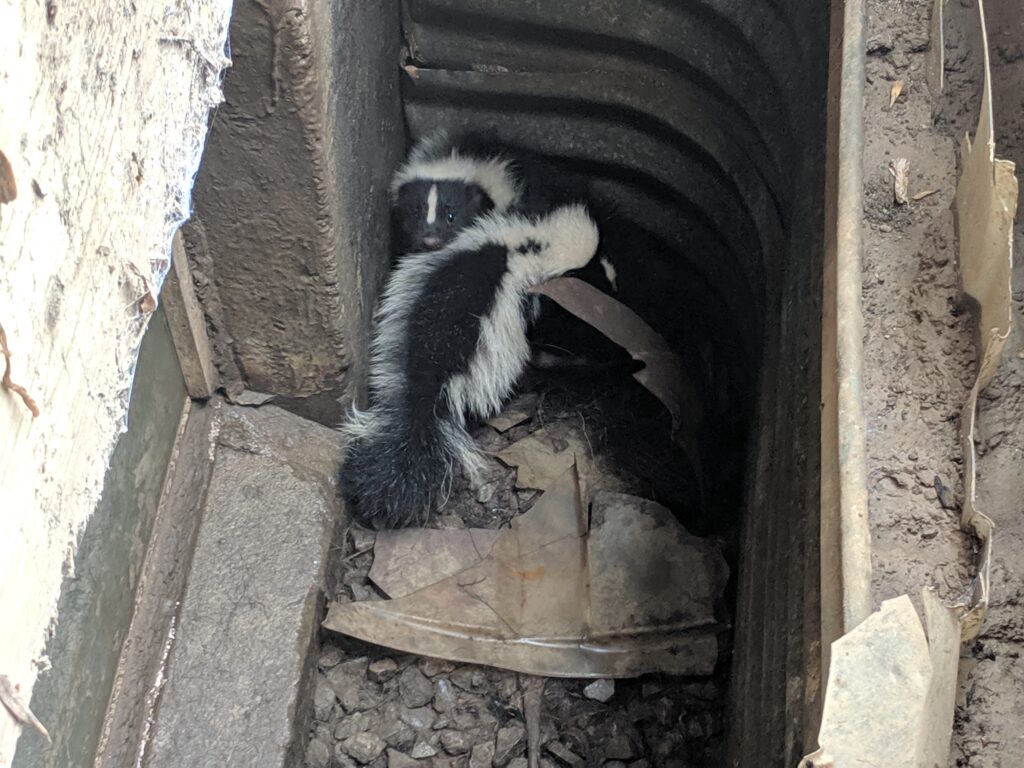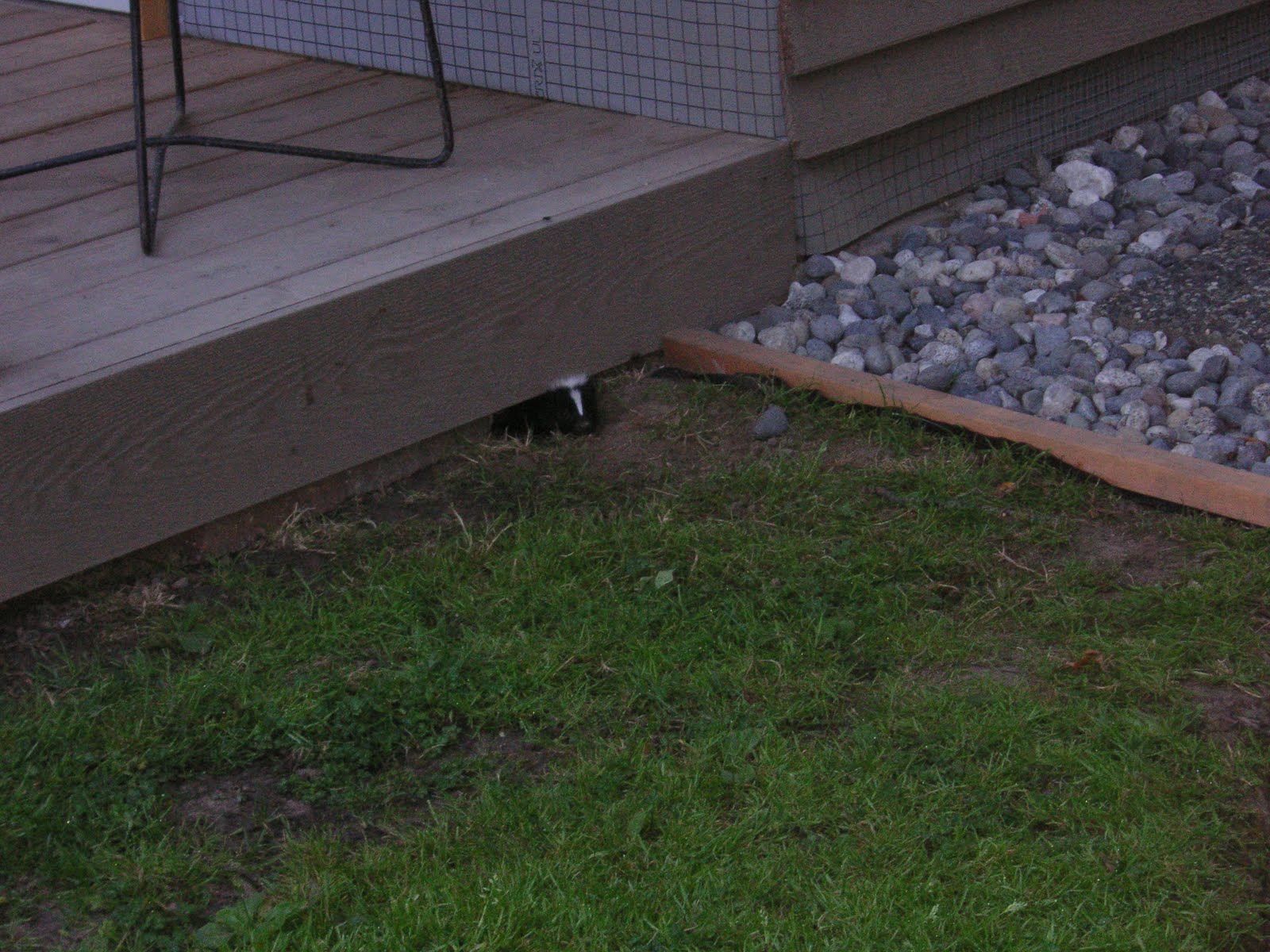Skunks That Spray in the Night
Skunks are nocturnal creatures. They are more active when the sun goes down than they are during the daylight hours. It isn’t uncommon for these shy and generally docile animals to use their primary form of defence at night. A skunk sprays when it feels threatened or is startled. Females also use their stench to tell a potential suitor that his attentions are not welcome. Skunk spray is an oily substance that contains sulphur compounds. If the animal releases all its spray, it can take it 10 days to recharge, leaving it nearly defenceless in the meantime. For this reason, skunks are not quick to shoot, resorting to spraying only when they feel it is necessary. Though a skunk does not spray unless it is startled or as a last resort, its nighttime activity makes it more likely that it will have close encounters with a potential predator or your pet.Steps That Keep Pets Free of Skunk Stink
Dogs and cats are frequent victims of skunk spraying. When they go out at night, they may happen upon a skunk doing its thing and get way too close for the skunk’s comfort. They may take the skunk by surprise or continue to approach despite the skunk’s warning signs to stay back. If you have a pet that goes outside at night, there are steps you can take to keep them from getting sprayed, including:- Walking it on a leash and sticking to the sidewalk
- Keeping your yard well lit
- Making a lot of noise before letting your pet out the door

Signs That Indicate Scram Is at Home
You can catch a whiff of a skunk’s potent odour up to 2 km away, so smelling a skunk after dark does not mean you have one living on or visiting your property. In general, the stronger the smell, the nearer the skunk. If it seems close, it may just be passing through on its foraging and hunting rounds rather than denning on your property. Though the smell is unpleasant, the critter will likely move on. Signs that the skunk has set up its home on your property include:- A musty smell near your porch, shed or deck
- Footprints that resemble a cat’s but slightly larger and with five claw marks
- Small round holes in your yard
- The release of odour on multiple occasions, which may indicate a mama is on the property with her little ones or that it’s mating season




